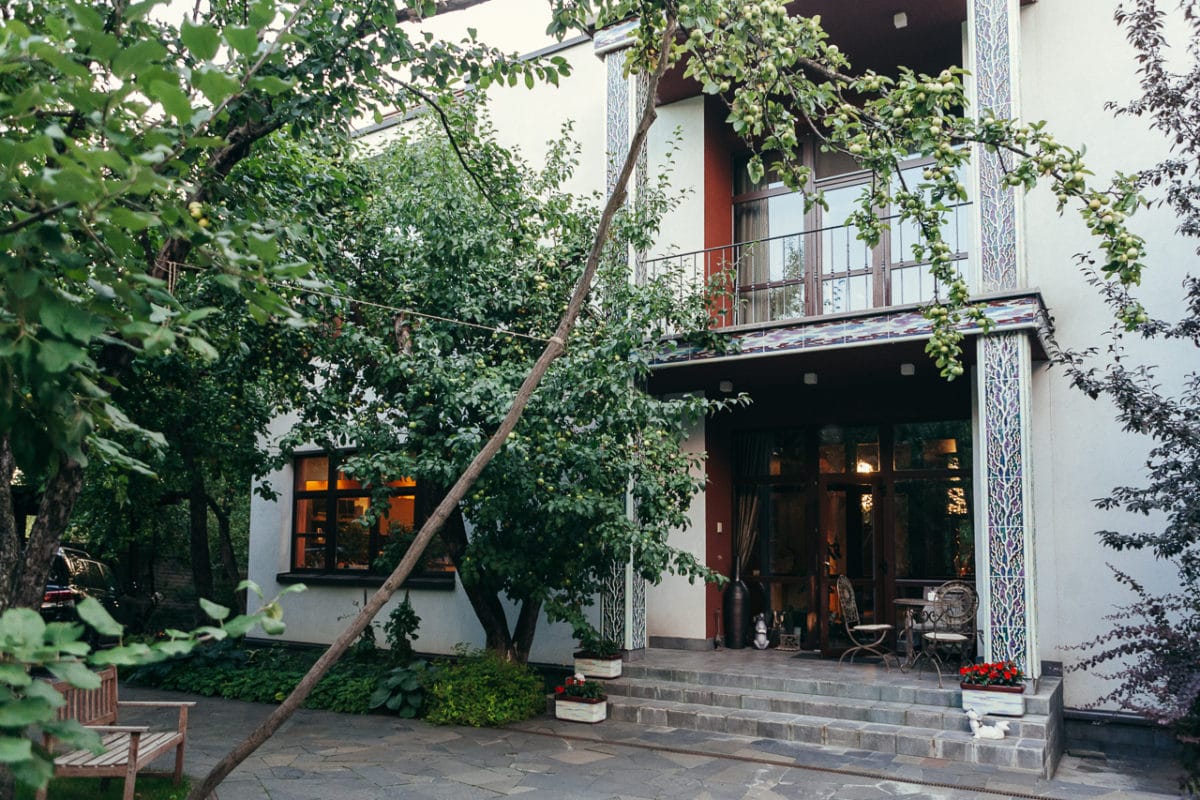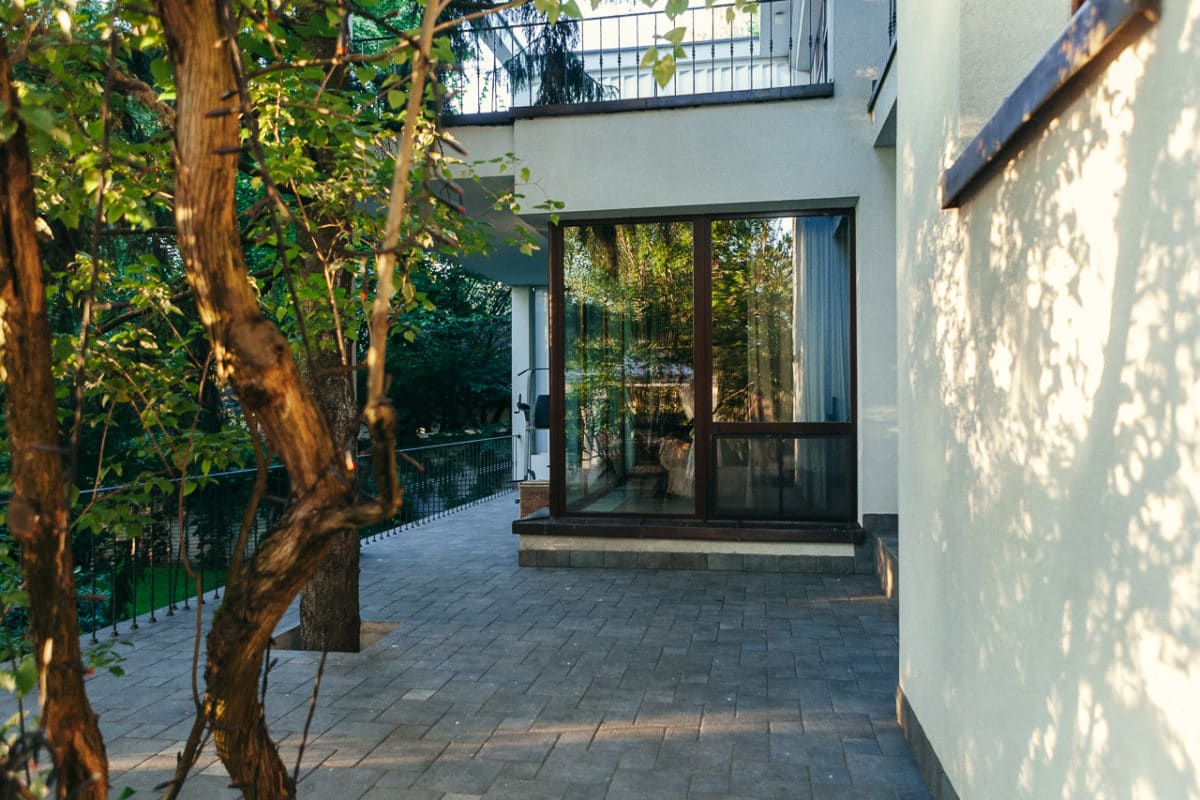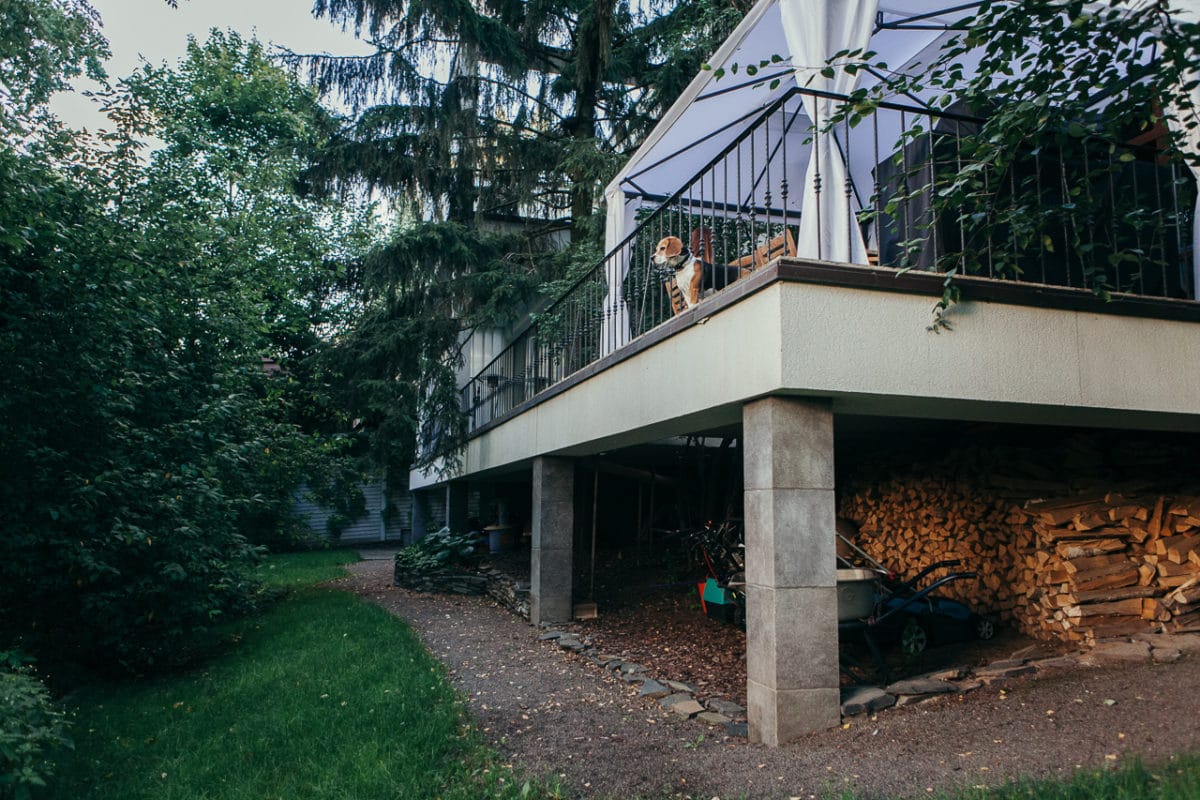If you can answer these five questions, you are ready to build your own home. Building a house is impossible without a team andexperts, so today we talked to Alexander Stroikov, who shared some useful advice with us. Alexander Stroikov is a curator of private construction projects, founder and managing director of the Stroikov Real Estate Engineering group of companies: - A country house is a special space and environment with constant concerns about both the site and the building. Living in a private house allows you to feel the rhythm of life more acutely: winter snow, summer gardening, autumn smoky fires, wet and cold off-season - all this fills your stay here with completely different challenges and impressions. In an apartment, you are a guest and a neighbor - your property is limited to a wall with wallpaper. The city kindly welcomes you and offers a lot of nice things: movie theaters, restaurants, infrastructure. The city shortens distances and takes on many household chores. Today, any metropolis is a giant business center, where everything is organized so that you are not distracted from work. This is the main difference between a city apartment and a country house. And before you change your life and buy a plot of land, a house or become a customer, answer the five questions that I have formulated below.
Building a house is impossible without a team andexperts, so today we talked to Alexander Stroikov, who shared some useful advice with us. Alexander Stroikov is a curator of private construction projects, founder and managing director of the Stroikov Real Estate Engineering group of companies: - A country house is a special space and environment with constant concerns about both the site and the building. Living in a private house allows you to feel the rhythm of life more acutely: winter snow, summer gardening, autumn smoky fires, wet and cold off-season - all this fills your stay here with completely different challenges and impressions. In an apartment, you are a guest and a neighbor - your property is limited to a wall with wallpaper. The city kindly welcomes you and offers a lot of nice things: movie theaters, restaurants, infrastructure. The city shortens distances and takes on many household chores. Today, any metropolis is a giant business center, where everything is organized so that you are not distracted from work. This is the main difference between a city apartment and a country house. And before you change your life and buy a plot of land, a house or become a customer, answer the five questions that I have formulated below. 1.Why do you need a house? Write down your goals and desires. The idea of building your own house is like falling in love - we see only advantages and do not notice the disadvantages. Only common sense can help. Since you are forming the content of your future life, write down as many answers as possible to the question - why do you need a house, why do you want to live in a separate house. Then think over each answer and imagine how the desired goal will change the life of your family. Quite often people say: "I want to live in nature, breathe fresh air with my children", but this is followed by other questions that will require answers. How much do you currently spend on the road from home to work and how much will you spend if you live outside the city? Let's say three hours behind the wheel on weekdays. Then in a year there will be 792 hours of road inhalation of exhaust fumes. Also, in the conditions of suburban life, the question of infrastructure arises: stores, school, kindergarten. How will relatives, nannies, housekeepers get to you? 2. Who are you building a house for? At first glance, the answer is obvious, but it must be specific, since it forms the task for design. List all the relatives who will live in the house permanently, and who will come to visit. Write down their ages, how old they are today and how old they will be in ten years - this will tell you how to organize the layout of the house so that everyone will be comfortable in the years to come. Note that the Western tradition does not assume such planning horizons: there, children grow up and live independently, and elderly parents are often sent to boarding houses.
1.Why do you need a house? Write down your goals and desires. The idea of building your own house is like falling in love - we see only advantages and do not notice the disadvantages. Only common sense can help. Since you are forming the content of your future life, write down as many answers as possible to the question - why do you need a house, why do you want to live in a separate house. Then think over each answer and imagine how the desired goal will change the life of your family. Quite often people say: "I want to live in nature, breathe fresh air with my children", but this is followed by other questions that will require answers. How much do you currently spend on the road from home to work and how much will you spend if you live outside the city? Let's say three hours behind the wheel on weekdays. Then in a year there will be 792 hours of road inhalation of exhaust fumes. Also, in the conditions of suburban life, the question of infrastructure arises: stores, school, kindergarten. How will relatives, nannies, housekeepers get to you? 2. Who are you building a house for? At first glance, the answer is obvious, but it must be specific, since it forms the task for design. List all the relatives who will live in the house permanently, and who will come to visit. Write down their ages, how old they are today and how old they will be in ten years - this will tell you how to organize the layout of the house so that everyone will be comfortable in the years to come. Note that the Western tradition does not assume such planning horizons: there, children grow up and live independently, and elderly parents are often sent to boarding houses. 3.Who will help? Define a circle of assistants. Who will participate in the construction process? How will you distribute roles in your family so that everyone makes a feasible contribution to the common cause? Do not isolate relatives from this experience, let your children participate in discussing the project, let them lay the first stone in the foundation of the future home. Celebrate the completion of each stage of construction with small family holidays. Construction is a creative process, use it to unite the family. Distribute tasks: who will communicate with the architect and builders, who will do the decor and landscape design. Think about which of your friends and acquaintances who have gone through a similar story you can consult with. Collect recommendations from experts. You are preparing for an exciting but difficult journey, and you need a team of like-minded people and professionals. 4. How much time and money are you willing to spend? Write down the construction budget and make a schedule for replenishing it. When planning to build a house, you act as an investor in a project with unclear deadlines and quality. If this is your first experience, you will not be able to take into account most of the expenses in advance. In addition to the house, you will need to connect utilities (gas, water, electricity, sewerage), and landscape design also requires participation. Buying furniture and interior details will require considerable funds. If you need a loan, you should know the monthly costs of its maintenance. Therefore, you need to calculate your capabilities and write down additional sources of income. When you have specific figures in front of you, this will allow you to start construction and complete it without turning the construction into a long and complicated story. Do not forget that there are also unscrupulous builders on the construction market who use advertising tricks to attract an audience. For example, the term "turnkey" construction is not regulated in any way, and if there is no detailed project, you will not be able to check the completeness of the work, and you will not have any leverage over such a contractor.
3.Who will help? Define a circle of assistants. Who will participate in the construction process? How will you distribute roles in your family so that everyone makes a feasible contribution to the common cause? Do not isolate relatives from this experience, let your children participate in discussing the project, let them lay the first stone in the foundation of the future home. Celebrate the completion of each stage of construction with small family holidays. Construction is a creative process, use it to unite the family. Distribute tasks: who will communicate with the architect and builders, who will do the decor and landscape design. Think about which of your friends and acquaintances who have gone through a similar story you can consult with. Collect recommendations from experts. You are preparing for an exciting but difficult journey, and you need a team of like-minded people and professionals. 4. How much time and money are you willing to spend? Write down the construction budget and make a schedule for replenishing it. When planning to build a house, you act as an investor in a project with unclear deadlines and quality. If this is your first experience, you will not be able to take into account most of the expenses in advance. In addition to the house, you will need to connect utilities (gas, water, electricity, sewerage), and landscape design also requires participation. Buying furniture and interior details will require considerable funds. If you need a loan, you should know the monthly costs of its maintenance. Therefore, you need to calculate your capabilities and write down additional sources of income. When you have specific figures in front of you, this will allow you to start construction and complete it without turning the construction into a long and complicated story. Do not forget that there are also unscrupulous builders on the construction market who use advertising tricks to attract an audience. For example, the term "turnkey" construction is not regulated in any way, and if there is no detailed project, you will not be able to check the completeness of the work, and you will not have any leverage over such a contractor. 5.How much does it cost to maintain and service a private home? This is the final question you need to answer. Do you have a good idea of how much it will cost to own your dream? Let's figure it out: taxes directly depend on the area of the house and its cadastral value, which means that when working on a design assignment, you need to soberly assess the area. Often you have to deal with irrational layouts. If you save on an architect, meaningless spaces may appear, for which you will have to pay first during construction, and then - when you receive tax notices. Utility bills also depend on the area, the level of natural light, the thermal insulation of the house and the engineering solutions used. Consider the constant rise in gas and electricity prices, local fees (a problem for all organized villages): for security, gardeners, road repairs and common utilities. Ask these questions not to realtors and the developer, but to residents. Pay attention to what the village looks like. If it is only under construction, you need to be even more careful so as not to have to lay roads and communications at your own expense. In the Moscow region, due to the dishonesty of developers, entire villages are often disconnected from the gas supply. Always think about the costs of scheduled repairs, choose materials and technical solutions that will make your home reliable. Try to analyze all possible expenses. Forewarned is forearmed. Despite the many pitfalls, buying or building your own home is one of the most exciting episodes in life, requiring the attention and participation of professionals. The quality of life in your own home is undoubtedly higher than in a city apartment, but to experience this to the fullest, you need to competently approach the issue of planning the construction of your own home. Alexander Stroykov
5.How much does it cost to maintain and service a private home? This is the final question you need to answer. Do you have a good idea of how much it will cost to own your dream? Let's figure it out: taxes directly depend on the area of the house and its cadastral value, which means that when working on a design assignment, you need to soberly assess the area. Often you have to deal with irrational layouts. If you save on an architect, meaningless spaces may appear, for which you will have to pay first during construction, and then - when you receive tax notices. Utility bills also depend on the area, the level of natural light, the thermal insulation of the house and the engineering solutions used. Consider the constant rise in gas and electricity prices, local fees (a problem for all organized villages): for security, gardeners, road repairs and common utilities. Ask these questions not to realtors and the developer, but to residents. Pay attention to what the village looks like. If it is only under construction, you need to be even more careful so as not to have to lay roads and communications at your own expense. In the Moscow region, due to the dishonesty of developers, entire villages are often disconnected from the gas supply. Always think about the costs of scheduled repairs, choose materials and technical solutions that will make your home reliable. Try to analyze all possible expenses. Forewarned is forearmed. Despite the many pitfalls, buying or building your own home is one of the most exciting episodes in life, requiring the attention and participation of professionals. The quality of life in your own home is undoubtedly higher than in a city apartment, but to experience this to the fullest, you need to competently approach the issue of planning the construction of your own home. Alexander Stroykov
Is it worth building a house: 5 main questions – etk-fashion.com


